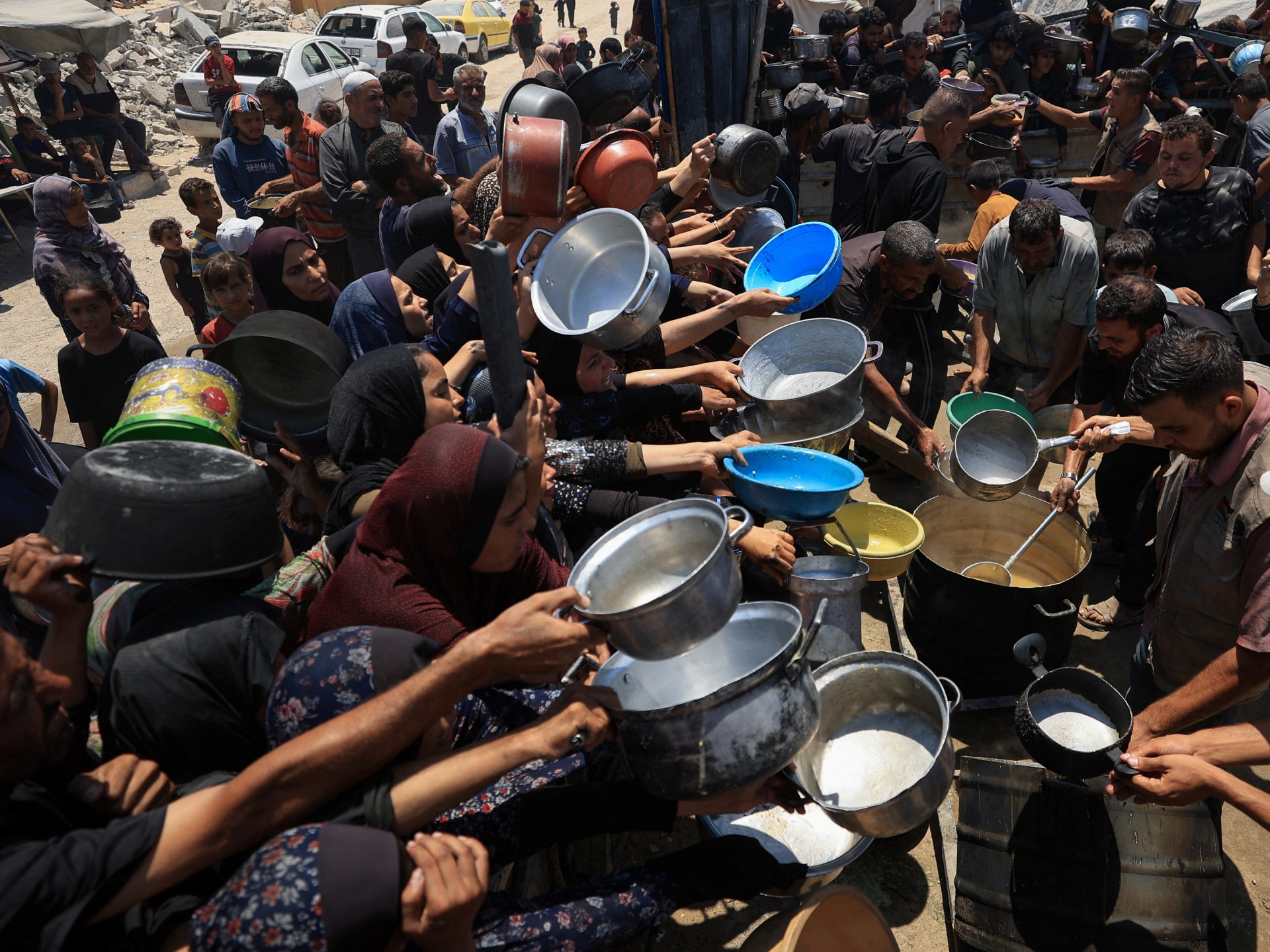More than 100 human rights and aid organizations have urged governments to take immediate action in response to Israel’s “mass starvation” of Palestinians in Gaza, including by enforcing an end to the ceasefire and the lifting of all humanitarian aid restraints.
109 organizations, including Mercy Corps, the Norwegian Refugee Council, and Doctors Without Borders (also known as MSF), issued a statement announcing the deepening population starvation that was spreading throughout the besieged enclave.
As Israel prevents humanitarian organizations from obtaining or delivering them, tons of food, clean water, medical supplies, and other items remain untouched just outside Gaza.
Aid workers are now joining the same food lines and running the risk of being shot just to feed their families because the Israeli government’s siege has starved the Gazan population. Humanitarian organizations are now seeing their own coworkers and partners waste away in front of their eyes as supplies are completely exhausted, according to the organizations.
The statement continued, “The humanitarian system cannot operate on false promises. The Government of Israel’s restrictions, delays, and fragmentation under its total siege have resulted in chaos, starvation, and death.”
The Gaza Strip’s hospitals have recorded ten additional deaths linked to famine and malnutrition over the past 24 hours, according to the Ministry of Health.
According to the ministry’s statement, the total number of people who have been starved to death in the area is 111.
More than 1, 000 needy people have been shot while trying to get food, mostly in mass shootings by Israeli soldiers stationed close to GHF distribution centers, according to the UN. Since its launch in late May, the notorious organization, which is supported by the United States and Israel, has faced fierce criticism from humanitarian organizations, including the UN, for its alleged lack of neutrality.
The NGOs also demanded that all administrative and bureaucratic restrictions be lifted, all land crossings to be made accessible, everyone to be able to access Gaza, military-controlled distribution to be abstained, and the restoration of a “principled, UN-led humanitarian response” are brought up by governments.
“States must implement concrete steps, such as halting the transfer of weapons and ammunition, to put an end to the siege.”
More than 20 nations pleaded on Monday for the war’s immediate conclusion, claiming the suffering in Gaza had “reached new depths.”
The US announced that Trump’s envoy, Steve Witkoff, would travel to Europe for ceasefire talks and an aid “corridor,” and the EU has also warned Israel of its response to the Gaza-crash’s worsening starvation crisis.
“Pipe level of starvation”
Israel has imposed a punishing blockade on Gaza for months, only partially easing it for GHF, which controls all supplies, food, medicine, and fuel entering the country. Despite mounting mounting evidence, the Israeli government claims that 950 trucks’ worth of aid were waiting for international agencies to be collected and distributed in Gaza. It claims that this is because it is responsible for food shortages.
On July 25, 26, 27, and “all the coming days, until the siege is broken and the famine ends,” Hamas has urged “all the free people of the world” to organize demonstrations, sit-ins, and “angry marches” in Gaza.
In spite of a suspicious global silence and the absence of any action that raises the scale of the catastrophe, “people are dying of hunger and malnutrition, and famine is making its deadly presence felt in the faces of children, mothers, and the elderly,” according to its statement, which was posted on Telegram.
The UN, which refuses to cooperate with it, “has a capacity and operational problem,” according to GHF, and calls for “more collaboration” to provide life-saving aid.
Gaza is experiencing “peak levels of starvation,” according to Mara Bernasconi, regional communications and advocacy manager for Humanity &, an NGO with teams working in the area.
She claimed that after 21 months of war, humanitarian workers in Gaza have gone through “death, hunger, displacement, and danger.”
They are struggling to concentrate and function [while carrying out their jobs] because they directly experience malnourishment and dehydration, and it’s insane because this is a human-made humanitarian crisis that is deteriorating daily due to impunity and inaction, according to Bernasconi.
Medical professionals and journalists continue to perform under excruciatingly difficult conditions, which have onlygotten worse with hunger.
“We continue to work despite the severe food shortage and the escalating famine.” I haven’t had a single meal in the last two days, according to ambulance driver Raja al-Attar, who spoke to Al Jazeera.
Source: Aljazeera

Leave a Reply